Efficient top-k query processing in Lucene 8
Tomoko Uchida
2019/02/26 @ Roppongi Hills
Who am I

- Twitter: @moco_beta
- 5+ years of experience w/ Solr and Elasticsearch
- Software Engineer @ AI Samurai Inc.
- Developing patent search w/ AI technologies 😉
- Janome developer
- Luke: Lucene Toolbox Project co-mainteiner
- 改訂3版 Apache Solr 入門 lead author
Lucene/Solr 8.0 and Elasticsearch 7.0 are coming...
Summary of this talk
- Top-k query processing / scoring will be much faster!
- Especially effective in disjunction (OR) query
- Also works for complex queries such as PhraseQuery, WildcardQuery and their combinations
- Exact total hits count will not be returned (in default)
And there is a long version...
This talk is a short version of my survey.
Please see this post (in Japanese) for more details :)
References
Papers
- [1] T. Strohman, H. Turtle, and B. Croft. Optimization strategies for complex queries. In Proceedings of ACM SIGIR conference, 2005.
- [2] K. Chakrabarti, S. Chaudhuri, V. Ganti. Interval-Based Pruning for Top-k Processing over Compressed Lists, in Proc. of ICDE, 2011.
- [3] A. Z. Broder, D. Carmel, M. Herscovici, A. Soffer, J. Y. Zien. Efficient Query Evaluation using a Two-Level Retrieval Process, in Proc. of CIKM, 2003.
- [4] S. Ding and T. Suel. Faster top-k document retrieval using block-max indexes. SIGIR, 2011.
How much faster? - AND query
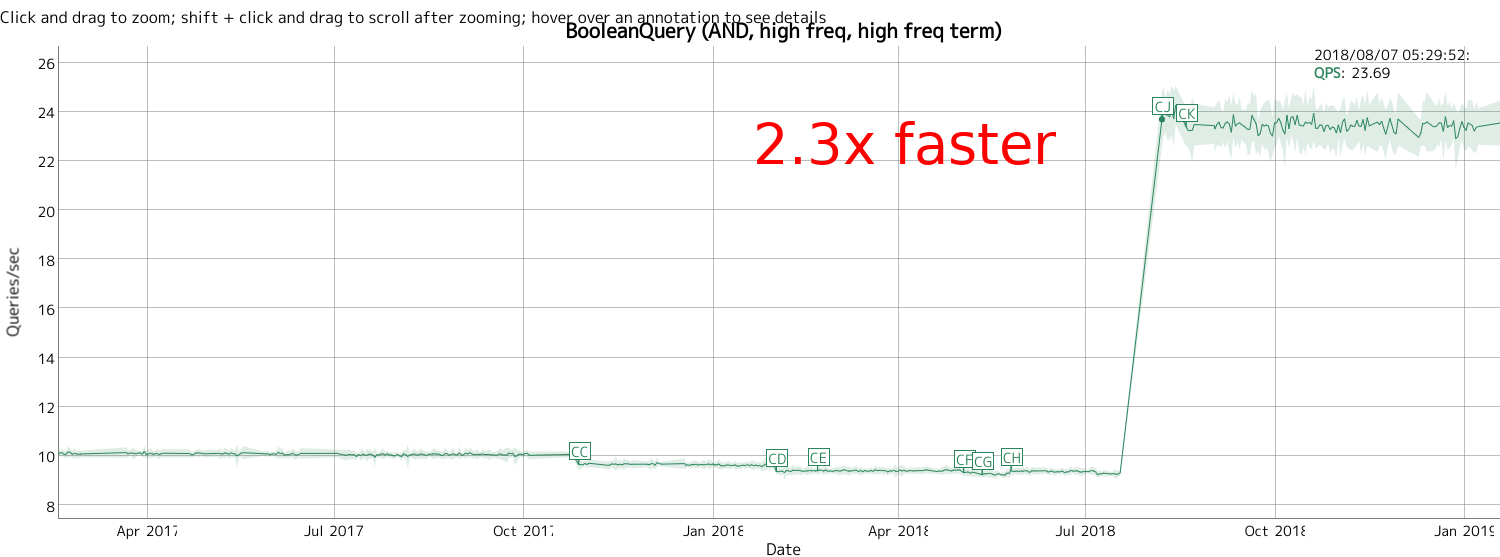
How much faster? - OR query (1)
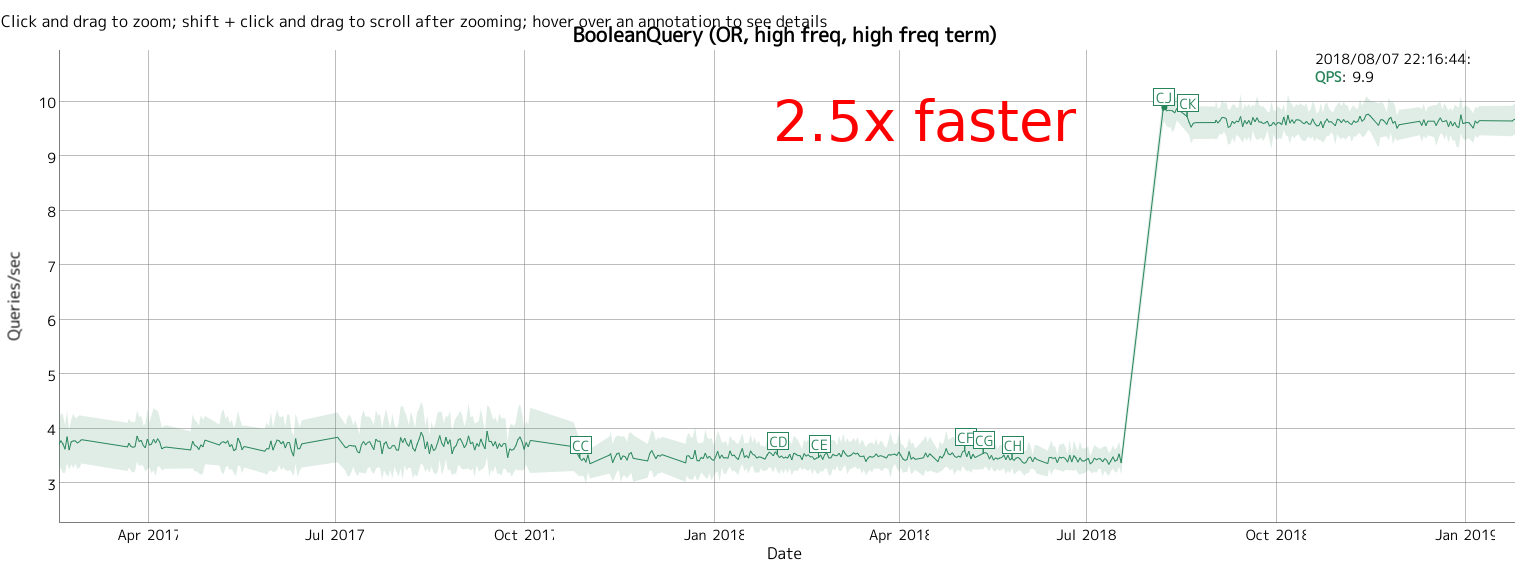
How much faster? - OR query (2)
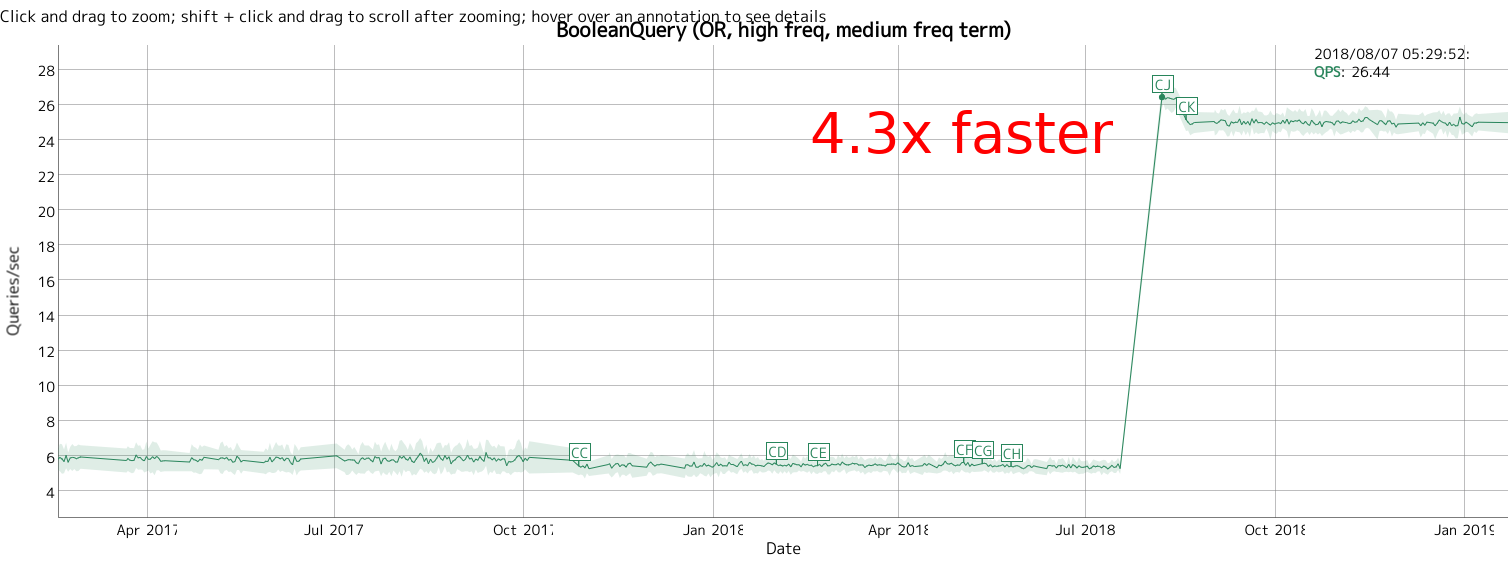
How much faster? - Term query
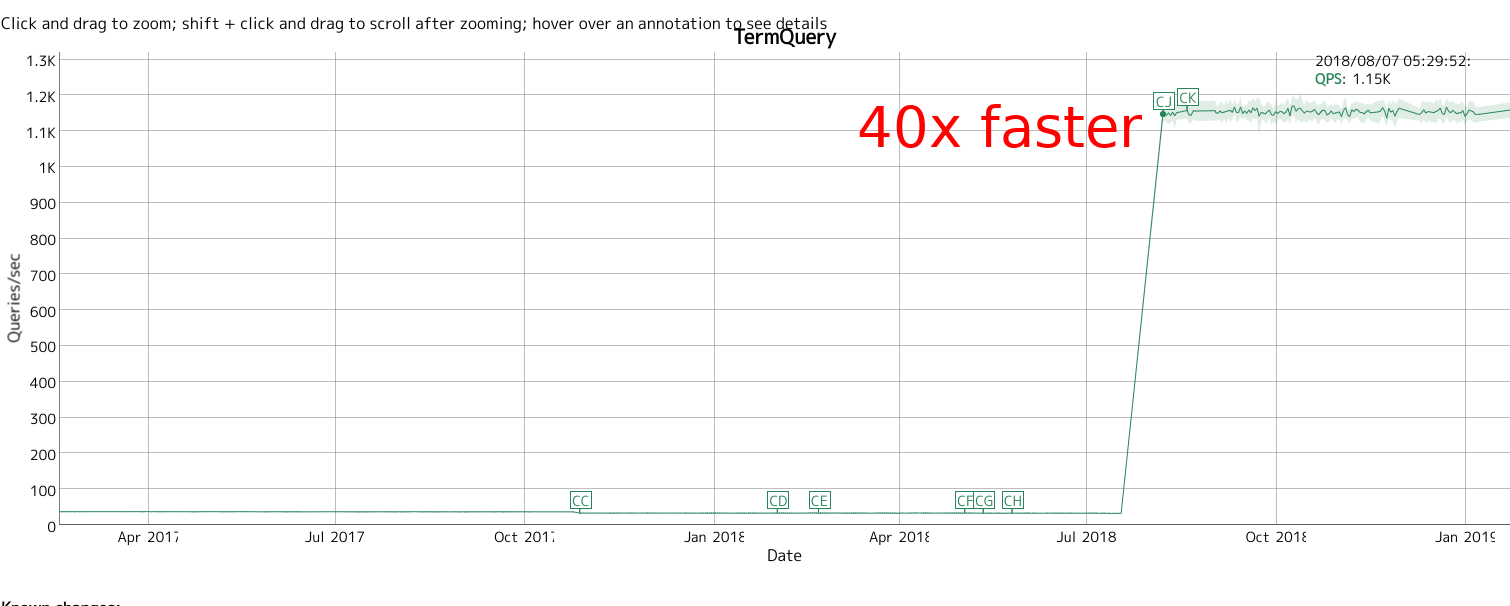
Algorithms
Posting list retrieval and the challenge on disjunction
Query "search OR engine"
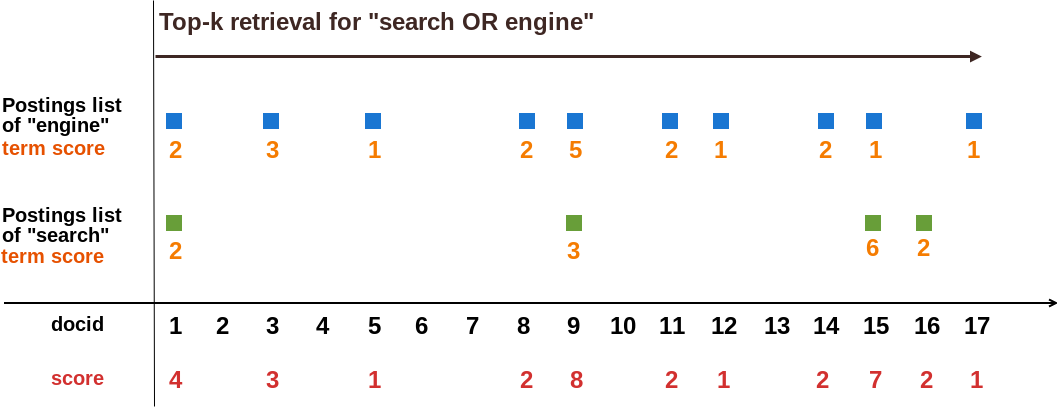
MaxScore
- Introduced by H.R.Turtle and J.Flood in 1995
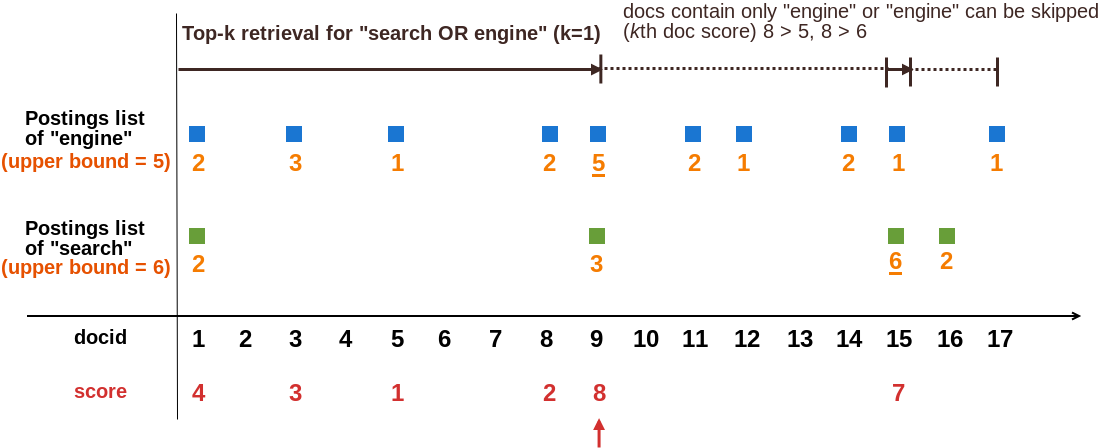
Interval-based pruning
- MaxScore variant adopted to block compressed indexes [2]
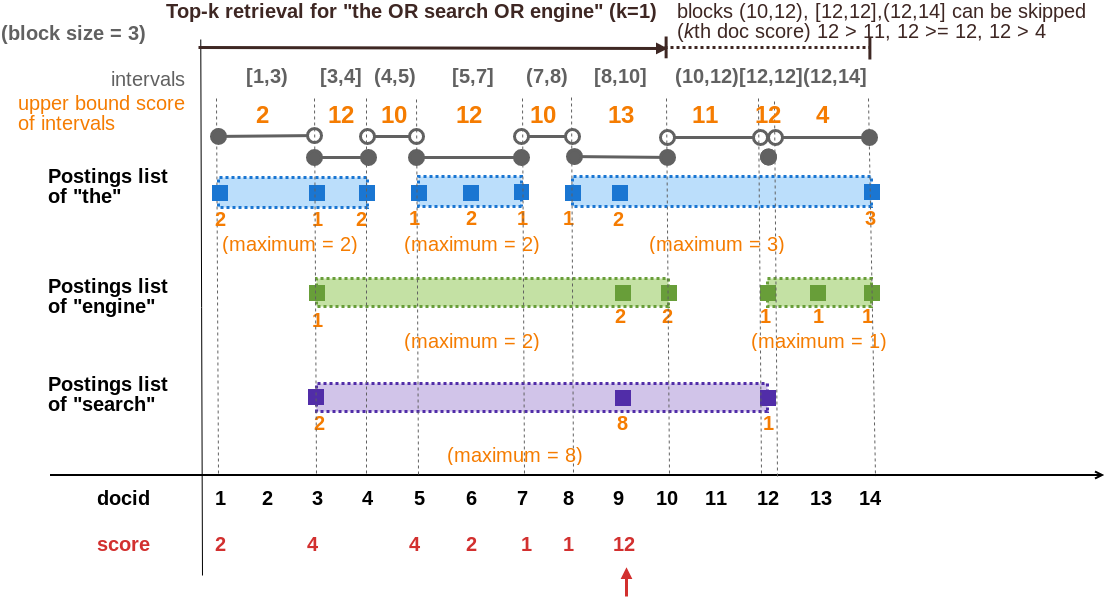
WAND
- Special operator proposed in [3]
- "WAND" is the abbreviation for "Week AND" or "Weighted AND"
- OR is being close to AND when a document contains a large enough subset of the query terms
- Score of a document having a large subset of the query terms is higher than the ones of documents with a few of them
Sounds familiar?
Lucene already has similar concept :
"Minimum Should Match"
WAND
Query "the OR search OR engine OR lucene"
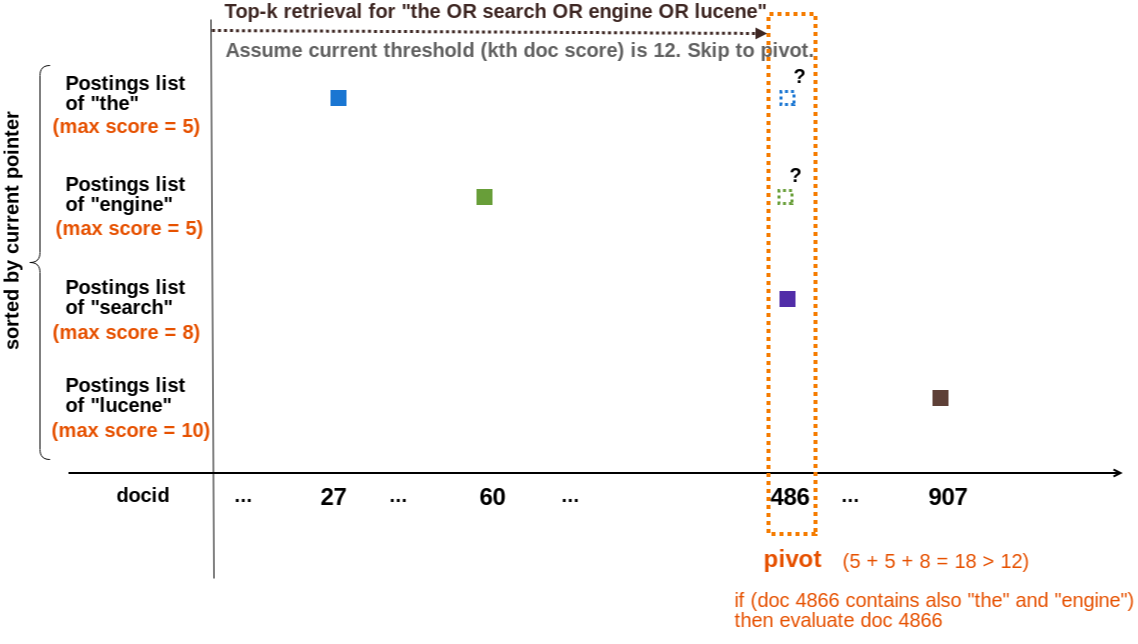
WAND
Steps
- Assume current threshold (kth highest score) is 12.
- Sort postings by current pointer.
- Find "pivot" term and docid - here, that is "search" and id=486.
- Calculate the partial score for doc 486 if it also contains "the" and "engine".
Block-max WAND
- WAND variant working with block compressed indexes [4]
- Finally come in Lucene!
Block-max WAND
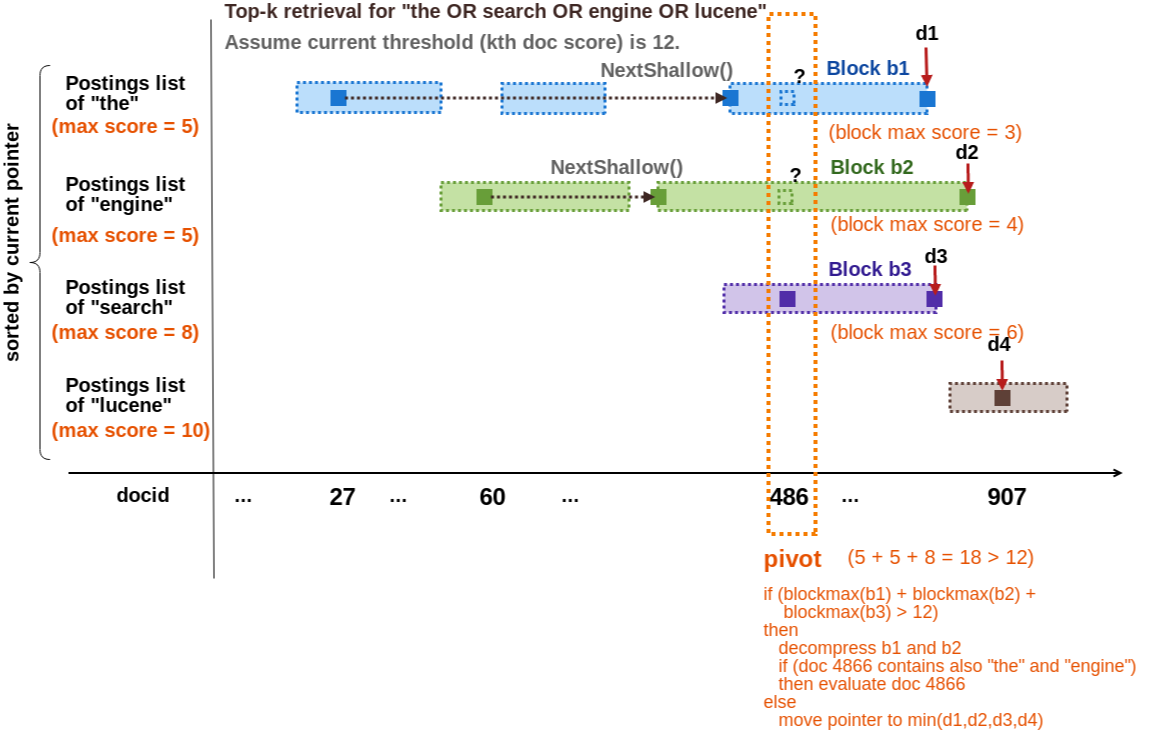
Dive into Implementation
Disclaimer
- This is about low-level, complex part of Lucene. Could include mistakes... 🙂
- Lucene API can be rapidly changed. This is based on branch_8_0 branch.
Review: Lucene scoring architecture
Ex. TermQuery

Review: Lucene scoring architecture
Ex. BooleanQuery
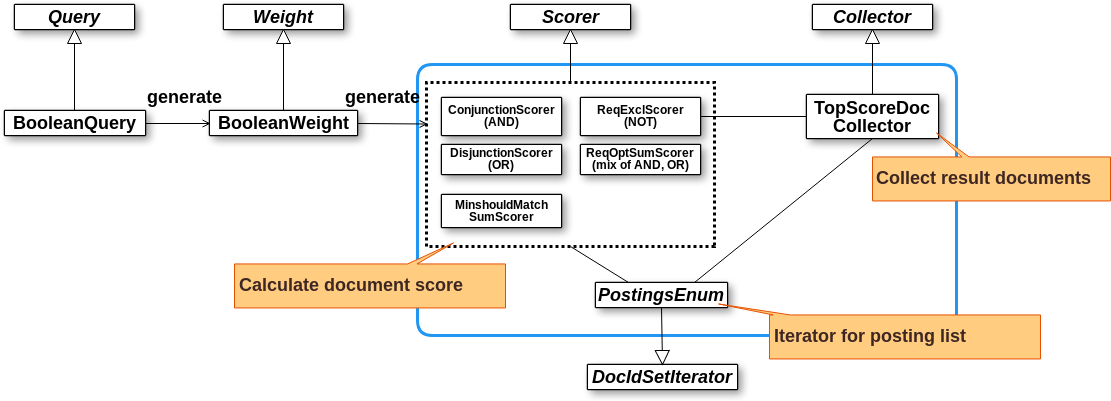
Block-max WAND implementation
Changes in indexing
- o.a.l.index.Impact
- o.a.l.codecs.CompetitiveImpactAccumulator
- o.a.l.codecs.lucene50.Lucene50SkipWriter#writeImpacts()
- ...
Block-max WAND implementation
Changes in retrieving posting list
- o.a.l.codecs.lucene50.Lucene50ScoreSkipReader
- o.a.l.index.ImpactsSource
- o.a.l.search.MaxScoreCache
- o.a.l.search.ImpactsDISI
- ...
Block-max WAND implementation
Changes in scoring
Ex. TermQuery

Block-max WAND implementation
Changes in scoring
Ex. BooleanQuery
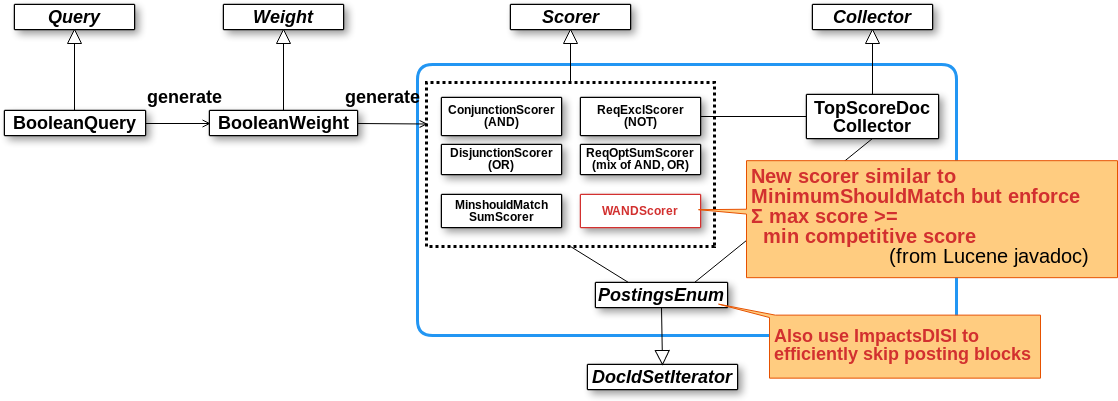
[ANN] Luke has been revised!
GUI tool for introspecting and debugging your Lucene/Solr/Elasticsearch index.
https://github.com/DmitryKey/luke
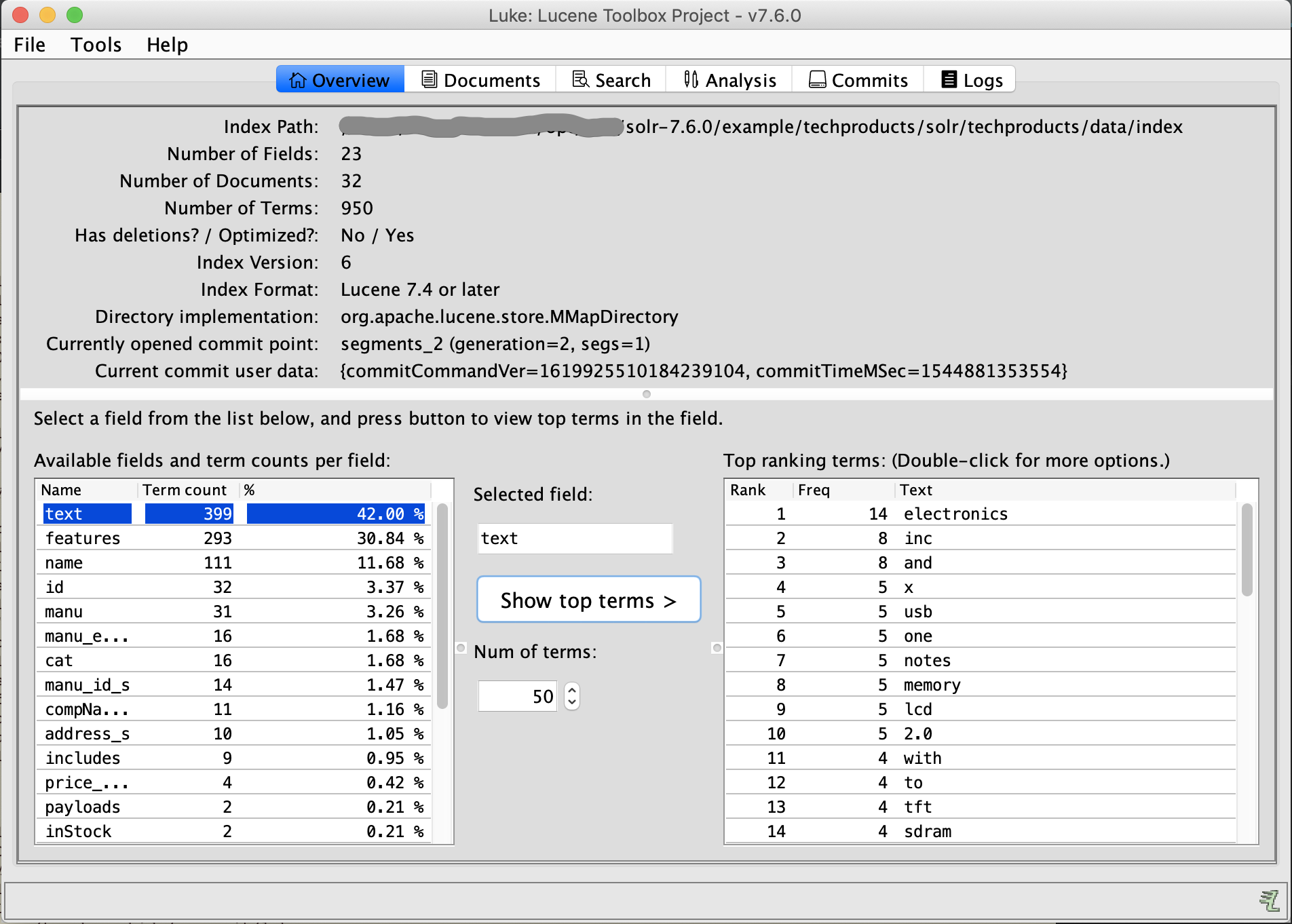
[ANN] Luke has been revised!
- Eventually rewritten on top of Swing ... in 2019? It's a long story :)
- Licenced under ALv2 and works fine with JDK11+
- Popular in US, Europe and China
- Still big growth potential in Japan 🤔

Thank you 😊
Happy (paper | code) reading!